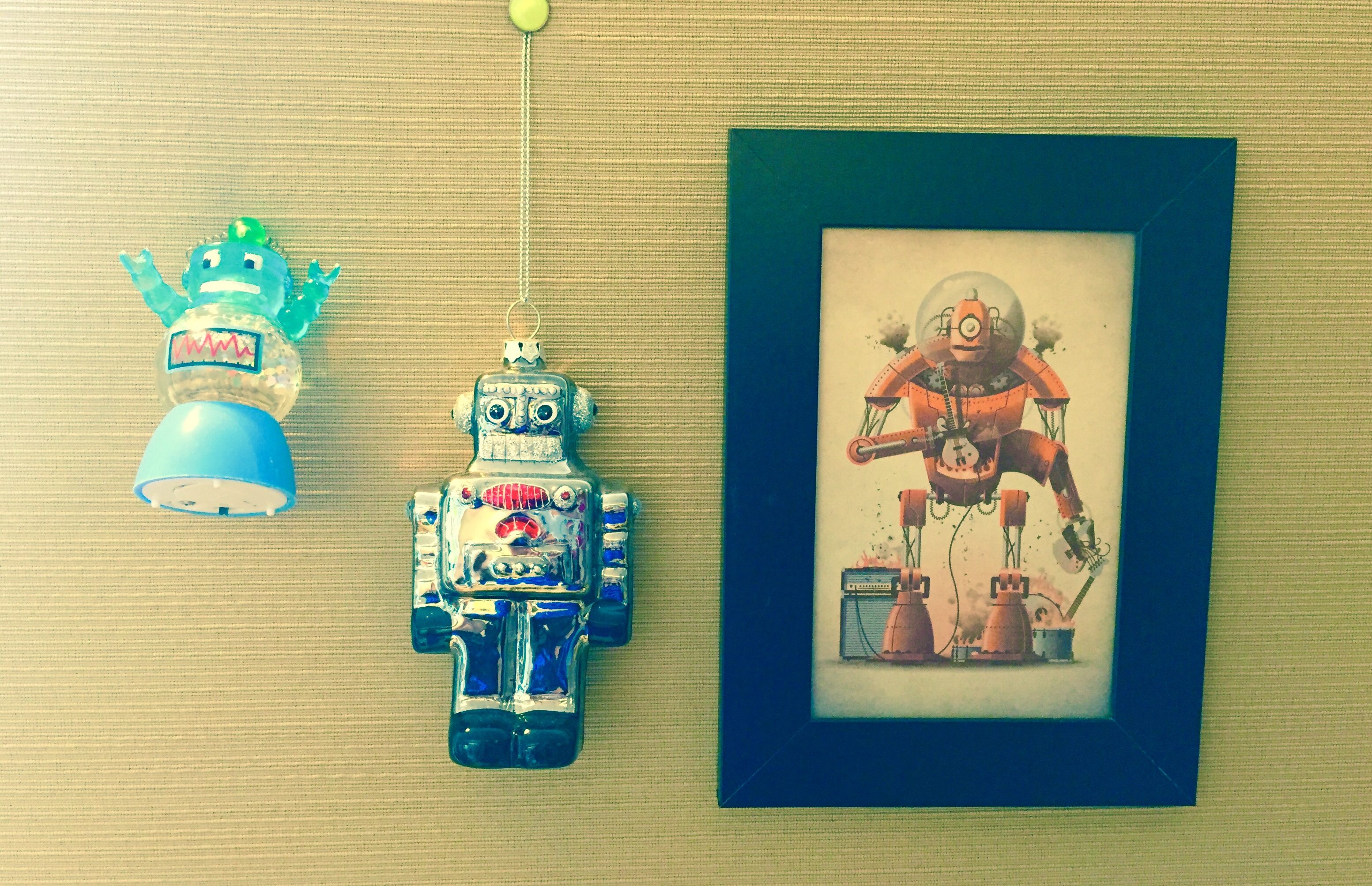
I spent a week in early August of this year attending the first Digital Pedagogy Lab, held at the University of Wisconsin, Madison. This summer institute focuses on how pedagogy happens with digital technologies and in virtual spaces. Our gathering in Madison asked us to think critically about the work that we do and to explore our roles within these new spaces. The fall semester began here at Whittier College and our work in DigLibArts took off! Now that I’m in the middle of helping to facilitate courses that are using digital tools for assignments I’m starting to reflect on the lessons and advice from #digpedlab, specifically how we use technology to teach and learn. A bigger question is how we might use technology to change education in meaningful ways.
I am a human tech pusher. My job is to create programs and projects that promote teaching with technology. When I join a class to talk and workshop digital projects I describe a process that is collaborative and creative and hope that it will lead to new methods of research and learning. An ed tech tool cannot do this alone. The pedagogy must drive the technology. It’s easy to get lost in the many tools that are open source or proprietary that offer ways to make flashy assignments and automate learning.
There are additional challenges for a tech pusher who is looking at digital pedagogy for meaningful ways to integrate ed tech tools . We work with a new generation of learners who are in desperate need for digital literacies. From basic computing skills to understanding how information is coded, curated and delivered, the Internet as a learning environment can be confusing.
But it’s also an opportunity to develop new forms of inquiry and knowledge production. This is where the tech pushing can be most useful! A tool can increase the visibility of scholarship as well as renew energy and excitement to hands-on, project-based learning. We’ve added new assignments this semester including one that involves students doing research in the college archives. Students searched through yearbooks, journals, and freshmen manuals to examine gender roles through the decades beginning with the 1930s. We’ve also held workshops on presentation techniques and tools for students to organize and present their findings. Our Flickr page shows our students sharing their work.
This week our campus will be visited by Jim Groom, co-founder of Reclaim Hosting and a big shaker from the Edupunk movement. Jim will be speaking about taking control of your digital identity, producing digital scholarship and will give a workshop on Domain of One’s Own which DigLibArts is piloting this semester.
So how does digital pedagogy influence the tools we use? In reflection, it’s not about tech pushing but rather the choices we have and the opportunities we give students to learn. This can happen in the classroom, in virtual spaces, through the Internet and within social networks. Empowering students to understand the web and encouraging them to become active participants in our networked world can be the best tool!
